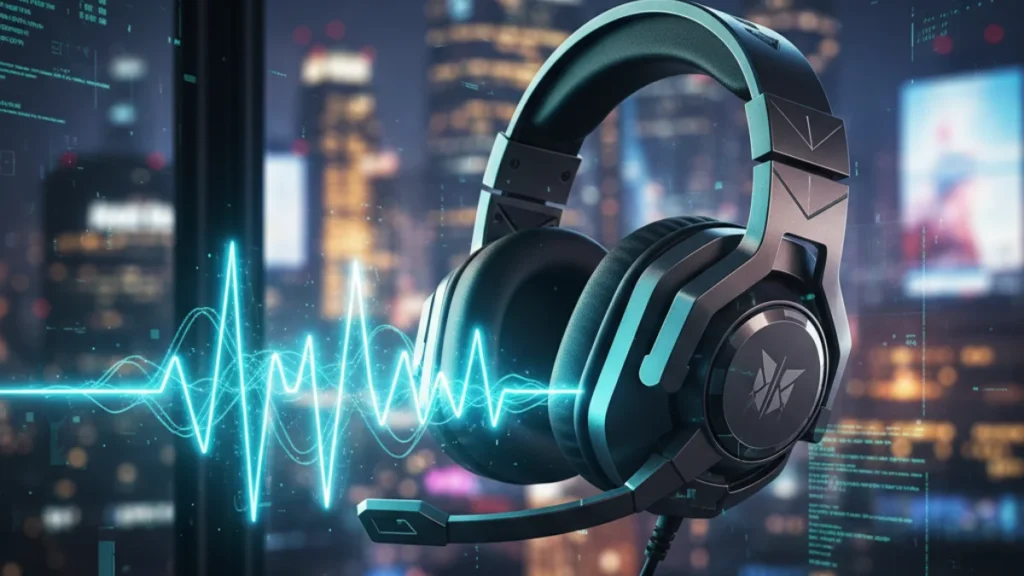French gamers were thrilled for a fresh “Tomb Raider” update — until Lara Croft opened her mouth.
The beloved heroine’s French voice sounded robotic and wrong, igniting anger among fans and longtime voice actor Françoise Cadol, who says her voice was cloned without consent.
Key Takeaways
- Fans spotted AI-cloned voice lines in August’s “Tomb Raider” remaster.
- Françoise Cadol, Croft’s longtime French actor, says rights were violated.
- Developer Aspyr admitted “unauthorized AI content” slipped into the update.
- Voice actors warn the case shows how AI threatens creative jobs worldwide.
- Legal pushback could shape future rules for synthetic voices in games.
In August 2025, “Tomb Raider IV–VI Remastered” accidentally shipped with AI-generated French voice lines mimicking actor Françoise Cadol. Developer Aspyr admitted the error, removed the content, and apologized. The incident reignited global debate about voice cloning, copyright, and how to protect human performers from unauthorized AI use.
A Beloved Heroine, an Unwelcome Voice
When the August update for Tomb Raider IV–VI Remastered went live, French gamer Romain Bos eagerly jumped in — until Lara Croft spoke. Her voice, once warm and witty under actor Françoise Cadol, sounded flat and mechanical. “It’s half Françoise, half AI — it’s horrible!” Bos lamented on YouTube that same night.
Cadol, who defined Lara’s French personality from 1996 to 2008, was shocked. “My voice belongs to me. You have no right to do that,” she told the Associated Press. Her phone lit up with angry fan messages minutes after the update landed.
Developer Admits ‘Unauthorized AI’
Aspyr, the Texas studio behind the remaster, didn’t answer AP’s detailed questions but posted a statement acknowledging “unauthorized AI generated content” had been included. The company says it removed the lines and apologized. Still, the misstep has become a flashpoint for performers worried about how fast synthetic voices are creeping into commercial media.
Why the AI Clone Stood Out
Fans noticed jarring new tutorial instructions, including one awkward French line — “Place toi devant et appuyez sur avancer.” Besides sounding robotic, the phrase broke French grammar conventions by mixing polite and casual forms. Longtime players instantly spotted the mismatch from Cadol’s usual charismatic delivery.
Actors Warn of a Global Threat
“This is happening everywhere,” says Patrick Kuban, co-president of United Voice Artists, a federation representing performers worldwide. Kuban warns that once companies normalize replacing actors with AI, other professions could follow. “If we can replace actors, we’ll be able to replace accountants and a whole range of jobs,” he told AP.
The warning echoes recent Hollywood labor battles. U.S. video-game performers spent nearly a year negotiating new contracts to limit AI voice cloning. Yet tools for making convincing deepfake audio keep spreading — from hobby apps to overseas studios — making enforcement tough.
Cadol Fights Back
Cadol has retained Paris lawyer Jonathan Elkaim, seeking an apology and compensation. She calls her fans “voice guardians” for alerting her within minutes. “I built a bond with players for 12 years. They know Lara’s voice as well as I do,” she said.
The case could become a reference point for French and EU copyright law, which already recognizes performers’ rights to their voice likeness but faces new AI-specific challenges.
The Bigger Picture: AI and Creative Ownership
Voice cloning technology has exploded, from free hobby tools to enterprise platforms. While some actors license their voice to AI models for pay, unlicensed use is largely unregulated. Legal experts say incidents like this show the gap between copyright law — designed for recorded works — and the reality of dynamic, generative tools.
What Happens Next
Cadol’s legal team is pursuing a formal settlement. Industry groups are lobbying EU regulators for stricter consent rules and watermarking. Developers are under pressure to audit their pipelines so unauthorized AI content doesn’t slip into updates unnoticed.
For gamers, the affair is a cautionary tale: even iconic characters can be reshaped by unseen algorithms. For creators, it’s a reminder to secure contracts and track how their performances are reused.
Conclusion
The Lara Croft voice-clone fiasco isn’t just a quirky fan revolt — it’s a warning shot for the entire creative economy. Without stronger guardrails, AI can erase decades of craft in a single software patch.
